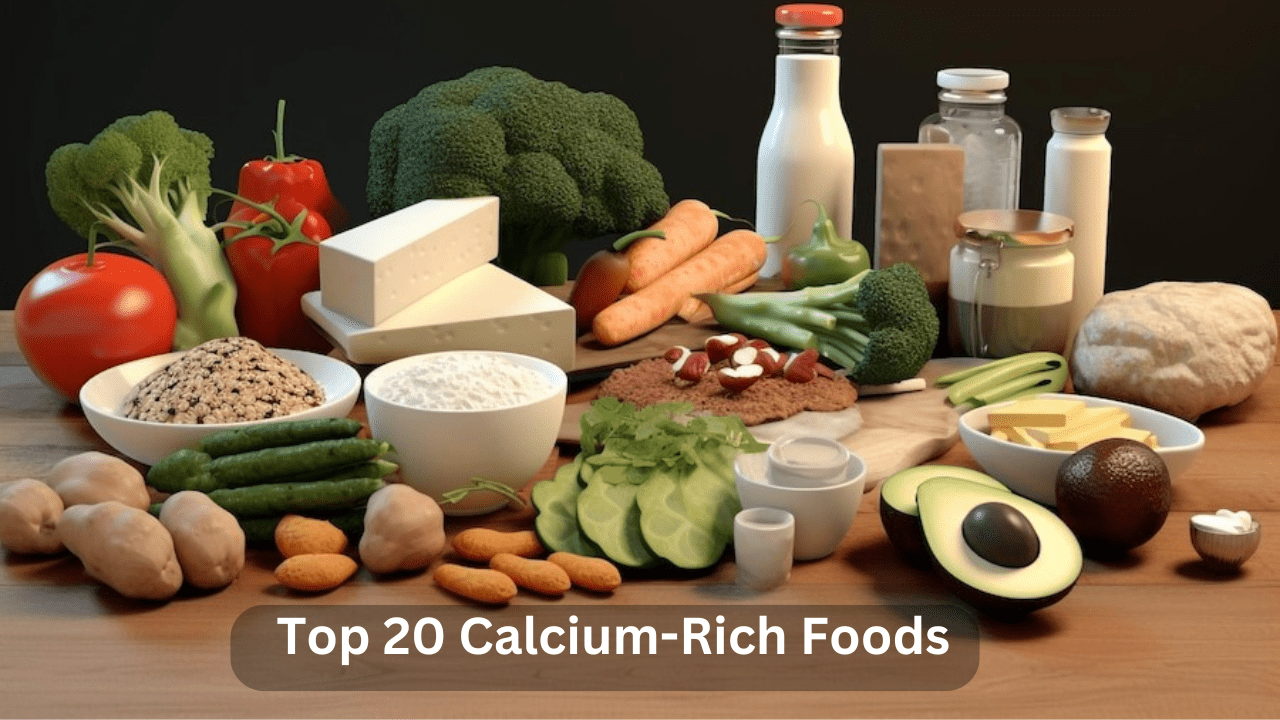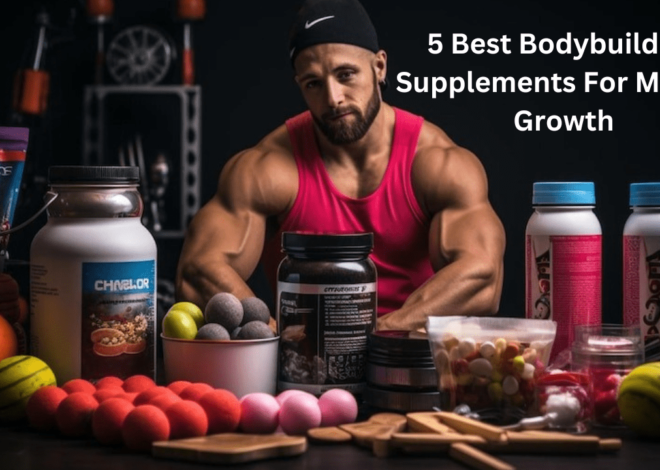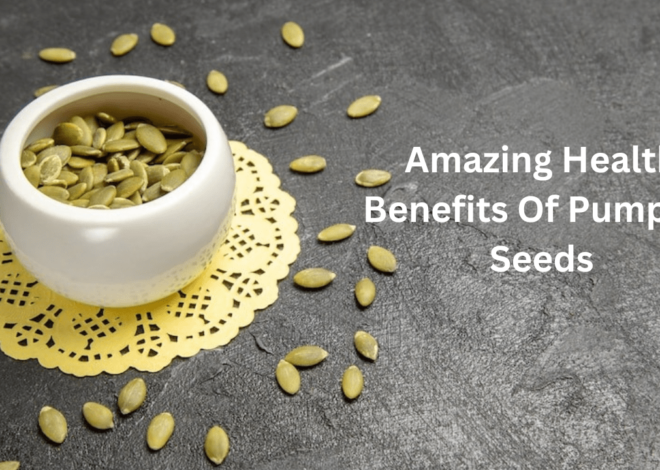
Top 20 Calcium-Rich Foods (Many Are Nondairy)
Are you almond-or dairy-free? Do you consume kale, spinach, broccoli, or other calcium-rich vegetables? If so, you’re likely getting enough calcium. However, many people don’t eat enough calcium-rich foods, especially those who don’t consume dairy products. Considering the health benefits of calcium, it’s essential to include enough sources in your diet. In this post, we’ll outline the top 20 calcium-rich foods (many of which are non-dairy) and provide tips on how much calcium you need and what to do if you take too much. Bon Appetit!
Calcium-rich foods for vegans and people who do not consume dairy
Calcium is one of the essential minerals our body needs to function correctly. It helps to maintain bone health and can help prevent osteoporosis in later life. So, vegetarians and vegans need to get their daily dose of calcium. One of the best sources of calcium is calcium-rich foods. However, many of these items are not typically considered sources of calcium. For example, fortified cereals, legumes (beans), tofu, almonds, figs, collard greens, kale, spinach, and Swiss chard are all calcium-rich foods that are vegan and non-dairy. So, include these items in your diet if you’re vegan or vegetarian!
Chia seeds
Chia seeds are a great source of calcium and other nutrients, making them an excellent addition to any diet. They also contain fiber which helps maintain regularity and can help with weight loss in some cases. It is best to store chia seeds in a cool and dry place for optimal nutrition. Almonds are another excellent source of calcium – they also contain vitamin E, magnesium, and potassium. They make an easy-to-consume snack or part of a healthful breakfast or lunch
Soy milk
Soy milk is an excellent source of calcium and other healthy nutrients. It also contains protein and fiber, making it a good choice if you’re looking for an alternative to dairy products. If soy milk isn’t your thing, try fortified plant pints of milk like hemp or rice milk which are also high in calcium. Soy milk is versatile enough to be substituted for cow’s milk in many recipes- so there’s no need to miss out on its benefits just because you don’t enjoy drinking soy!
Almonds
Almonds are a great source of nutrition, containing high levels of antioxidants and calcium. They are also a good source of vitamin D, which is essential for bone health and regulating blood sugar levels. As nuts are high in fat, eat them in moderation.
Dried figs
Dried figs are a great source of health-promoting nutrients and antioxidants. They have a sweet and savory flavor, can be enjoyed as a snack or added to salads or oatmeal for extra sweetness, and provide calcium-rich nutrition that is vegan and dairy-free.
Tofu
Tofu is a versatile dish that can enjoy in many different ways. It is a good source of calcium and vitamin B12, two essential nutrients for Vegans and vegetarians. You can also make tofu home using soaking, sprouting, or fermenting. Additionally, tofu is an excellent source of calcium and protein, which makes it ideal for vegetarians and vegans.
White beans
White beans are a great source of dietary fiber and protein, making them perfect for people looking to gain or maintain a healthy weight. In addition, they are also high in calcium which helps regulate bone health. They can be eaten raw as part of salads and snacks or cooked in soups or stews and soaked overnight before cooking will ensure that the beans become soft and flavorful.
Sunflower seeds
Sunflower seeds are a great source of nutrition, whether you’re looking to add them to your vegan or non-dairy meal plan or include them in your overall diet as part of calcium-rich foods. They’re also a good source of vitamin E, magnesium, and manganese – essential minerals for health and well-being. Make sure to include other calcium-rich foods like collard greens, broccoli, and tofu too!
Broccoli rabe
Broccoli rabe is a leafy green vegetable that is high in calcium and vitamin C. It also contains other vitamins and minerals, such as vitamin A and fiber. This vegetable can be eaten cooked or raw, making it a versatile choice for many people. Its slightly bitter flavor makes broccoli rabe a favorite among many who enjoy vegetables. As part of a salad or pasta sauce, broccoli rabe can add an exciting twist to your meal experience.
Edamame
Edamame is a delicious soybean-based snack that is high in fiber and calcium. It can be eaten, tossed into salads, or used to make soy milk. Add it to your food list if you want to intake more nutrients!
Kale
Kale is a delicious and nutritious vegetable that can be enjoyed as part of a plant-based or vegan diet. It is high in calcium and other nutrients, low in calories, and has beneficial effects on blood clotting, heart health, and more.
Sesame seeds
Sesame seeds are a great source of calcium, vitamin E, and magnesium. They also provide other nutrients such as thiamin, vitamin B6, copper, and selenium. These are all essential for good health and can help to protect the body against various diseases.
Broccoli
Broccoli is a great vegetable choice that’s high in vitamin C and calcium. It can be cooked in various ways, making it versatile enough for everyone. Broccoli also contains other health-boosting nutrients such as vitamin K and B12, making it an excellent addition to any diet plan.
Sweet potatoes
Sweet potatoes are a great source of vitamin C and fiber as well. They also contain a good amount of potassium, vitamin B6, manganese, and magnesium. In addition, sweet potatoes are an excellent source of calcium – one-fifth of your daily intake! Please make sure you enjoy them regularly for the best health benefits!
Mustard and collard greens
Mustard greens are a great source of nutrition and make an excellent addition to any diet. They are also high in other nutrients, such as iron and vitamin A, making them an ideal choice for people who want to supplement their intake of these essential vitamins healthily. Collard greens can be cooked like any other green vegetable or used in salads or wraps. Make sure you check the serving size on the food label before eating them – most contain a fair amount of calcium! Mustard greens belong to the brassica family, known for their strong calcium content.
Okra
Okra is a versatile vegetable that can cook in many flavors and styles. Although it is high in Vitamin C, okra isn’t recommended for vegan or dairy-free diets as dairy products are the source of this vitamin. It is also a good source of calcium and other essential nutrients and low on calories.
Oranges and orange juice
Oranges are a great source of calcium for people of all ages and dietary restrictions. One orange contains about 130 mg of calcium, almost half the recommended daily intake for adults! Additionally, oranges are also high in Vitamin C, which helps to absorb nutrients from other foods. You can enjoy orange juice as a calcium source- avoid added sugar or unhealthy additives.
Butternut squash
A great source of calcium and vitamin A. If you are not consuming dairy but still need to get your daily dose of calcium, butternut squash is a great option! This orange-colored vegetable is also rich in fiber which helps to regulate blood sugar levels. Additionally, butternut squash is a good source of vitamin A and calcium. It can be enjoyed as part of a vegan or vegetarian diet and provides plenty of health benefits too!
Arugula
Arugula is a leafy green vegetable that is excellent for health. It’s high in calcium, other minerals, antioxidants, and nutrients like magnesium, potassium, zinc, and fluoride. It can be enjoyed as part of a salad or a stir-fry dish. Additionally, it is gluten-free so it can be eaten by people with celiac disease too!
Cheese
Cheese is a dairy product that has been enjoyed for centuries worldwide. Many non-dairy calcium-rich foods can also be enjoyed, so cheese shouldn’t be considered an essential part of a vegan or vegetarian diet. Some great examples include almonds, tofu, and kale, among others!
Yogurt
Yogurt is a great dairy-free source of calcium, vitamin D, and protein. It’s also low in calories and easy to find in most grocery stores. Plus, its versatility can be enjoyed as part of a vegan or dairy-free diet. To get the most out of yogurt, buy vegan versions if you are vegetarian or don’t consume dairy products. Additionally, 3-ounce servings have about 20% of the recommended daily calcium intake, so it’s an excellent way to increase your information without adding too much weight or extra health risks.
Why You Need Calcium
Calcium is an essential nutrient for our health. It helps to maintain our calcium levels, keeps our bones and teeth strong, and helps to regulate blood pressure. Some of the best calcium-rich foods include almonds, kale, soy milk, chickpeas, and tofu. Dairy products are a good source of calcium, but limit your intake if you’re vegan or vegetarian! Most people don’t get enough calcium from their diet, so it’s essential to include some of these foods in your daily routine. Including calcium-rich foods in your diet will help you maintain good health and achieve your calcium intake goals.
How much calcium do I need?
Calcium is one of those essential minerals that is often forgotten. But don’t worry, you don’t need much of it to meet your daily needs. Many non-dairy foods are high in calcium, so incorporating them into your diet will help you reach your calcium goals easily. Some great sources of calcium include fortified cereals, milk products, tofu, and almonds. When calculating your daily intake of calcium, be sure to include non-dairy sources in your calculations. And if you’re looking for an easy way to test your calcium absorption levels, take advantage of the “calcium challenge” offered by various food companies each year. Happy calcium absorption-ing!
What happens if I take too much calcium?
Calcium is an essential mineral that helps keep bones healthy and strong, as well as teeth strong and healthy. However, too much calcium can have negative consequences, such as constipation and tooth decay. Luckily, calcium-rich foods exist that help to meet your daily needs. Some great options include almonds, legumes (beans, lentils), tofu, kale, Brussels sprouts, dark greens like collard greens and spinach, fortified soy drinks, or yogurts. Be sure to enjoy these foods in moderation, as too much calcium can be dangerous and lead to health problems such as kidney stones. So, the good news is that you don’t have to restrict yourself to dairy products to get the calcium your body needs! Enjoy these top 20 calcium-rich foods for a healthy body and mind!
Conclusion
Calcium is essential for healthy bone and teeth development, and it is also necessary for nerve function. In this blog, we have compiled a list of calcium-rich foods that are vegan-friendly and non-dairy. Consuming these foods regularly will ensure you get the recommended calcium amount. Check out the blog for more calcium-rich foods to include in your diet!
Frequently Asked Questions
Which fruit is rich in calcium?
Calcium-rich foods include almonds, Brazil nuts, cashews, cooked kale or spinach, canned chickpeas (garbanzo beans), canned sardines in olive oil, dried figs (unsalted), and tofu made from calcium sulfate supplement.
What food is highest in calcium?
Some of the highest sources of calcium include leafy greens, tofu, fortified soy milk, and almonds. These foods all have calcium in varying degrees, so it’s best to consult a nutritionist or dietitian to get an accurate intake of calcium. People who don’t eat dairy can also benefit from including these foods in their diet.
What are the best calcium-rich foods?
Some of the best calcium-rich foods that are non-dairy include almonds, kale, soy milk, tofu, and fortified cereals. Additionally, make sure to take in enough vitamin K when you’re eating these foods, as it helps to absorption of calcium. Vitamin D is also essential for bone health.
Which foods increase bone density?
Regularly incorporating these foods into your diet is critical to increasing bone density and strengthening your bones over time. Some non-dairy foods high in calcium include chickpeas, almonds, figs, kidney beans, tofu, and Brazil nuts. They’re all excellent sources of calcium – a mineral essential for bone health – as they provide enough vitamin C and vitamin K. calcium-rich dairy products, leafy green vegetables, and fortified soy drinks are also good sources of calcium.


